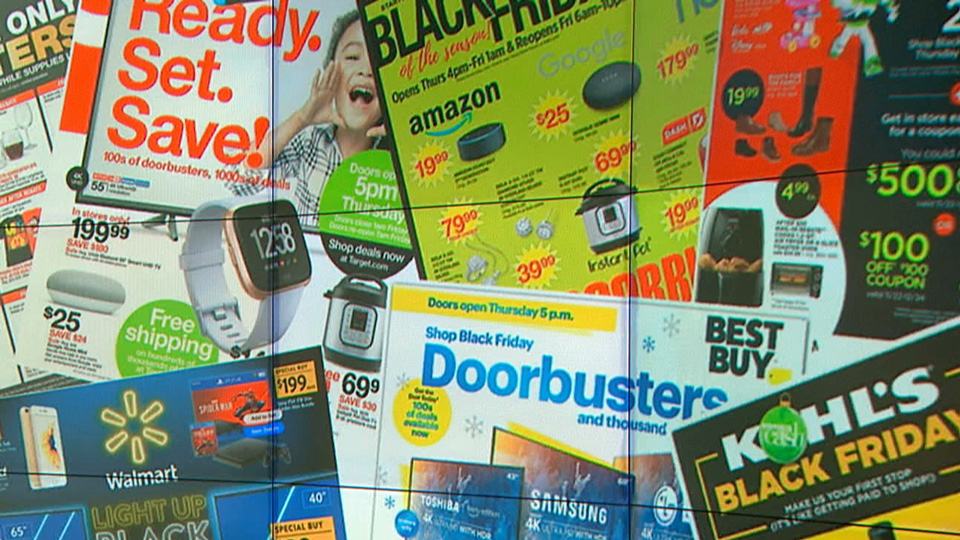It's Black Friday here in the United States. The day after Thanksgiving is one of the biggest shopping events of the year. So how did Black Friday come about, and how do the numbers stack up globally? CGTN's Gerald Tan explains.
02:15

It's that time of year when we just can't quite escape signs like these: Holiday Sale. Doorbusters. Black Friday Specials. In fact, the world's two largest economies, the United States and China, naturally also have some of the biggest spenders.
But how do they compare when it comes to their largest shopping events of the year?
Here in the United States, it's Black Friday. The term originally coined in Philadelphia in the 1950s to describe the annual shopping and traffic chaos the day after Thanksgiving. Eventually, retailers adopted it. They said it was the first day of the year they would turn a profit, the ink in their ledger books going from red to black.
Nowadays, Black Friday is a nationwide extravaganza. Last year, U.S. retailers raked in 6.2 billion dollars in online sales on Black Friday--the highest ever. That's not counting sales in brick-and-mortar stores, either. And the spending binge continued.
Bleeding into what's dubbed, Cyber Monday. Total sales: a record of 7.9 billion dollars. Still, spending for the entire weekend combined was eclipsed by China's own shopping bonanza:
Singles Day.
Celebrated on November 11th, or Double Eleven, it began as an anti-Valentine's event in the 1990s. Note the number of "ones" in the date. In 2009, tech mastermind Jack Ma adopted the day for his online portal Alibaba and the rest is history.
Some of the figures from this year's 24-hour event, truly staggering. Sales hit 1 billion dollars in just over a minute. And 13-billion dollars in the first hour. At the end of Singles' Day, a record-shattering 38.4 billion dollars in total sales.
Over the years, retailers in other countries have begun co-opting these shopping holidays for their own, in the hopes of cashing in. And it's a strategy that seems to be working when the shops have sales, the people will spend.